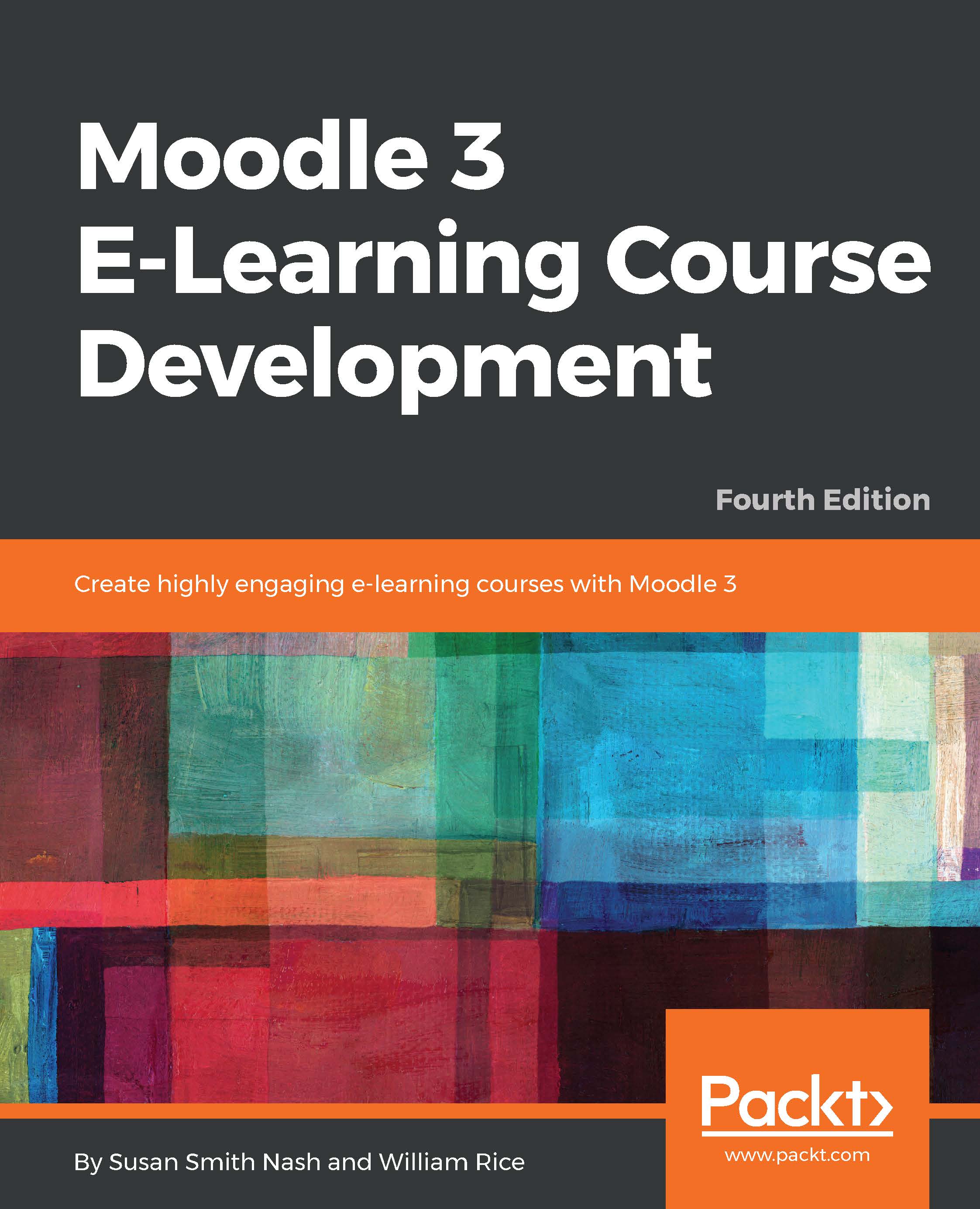At the heart of Moodle is the theory of learning that people learn best when they learn from each other, through meaningful interaction. Some of the interaction occurs in collaborative activities. However, bulk of the interaction will occur in social settings, both in synchronous or live chats or in asynchronous discussion board areas, called forums in Moodle.
Social course activities encourage student-to-student interaction. Peer interaction is one of the most powerful learning tools that Moodle offers. It not only encourages learning, but also encourages exploration. This tool also makes courses more interesting, because students can share their knowledge, which increases student participation and satisfaction. Peer sharing is part of the social constructionist approach to learning. Moodle embraces this approach. This chapter teaches...



